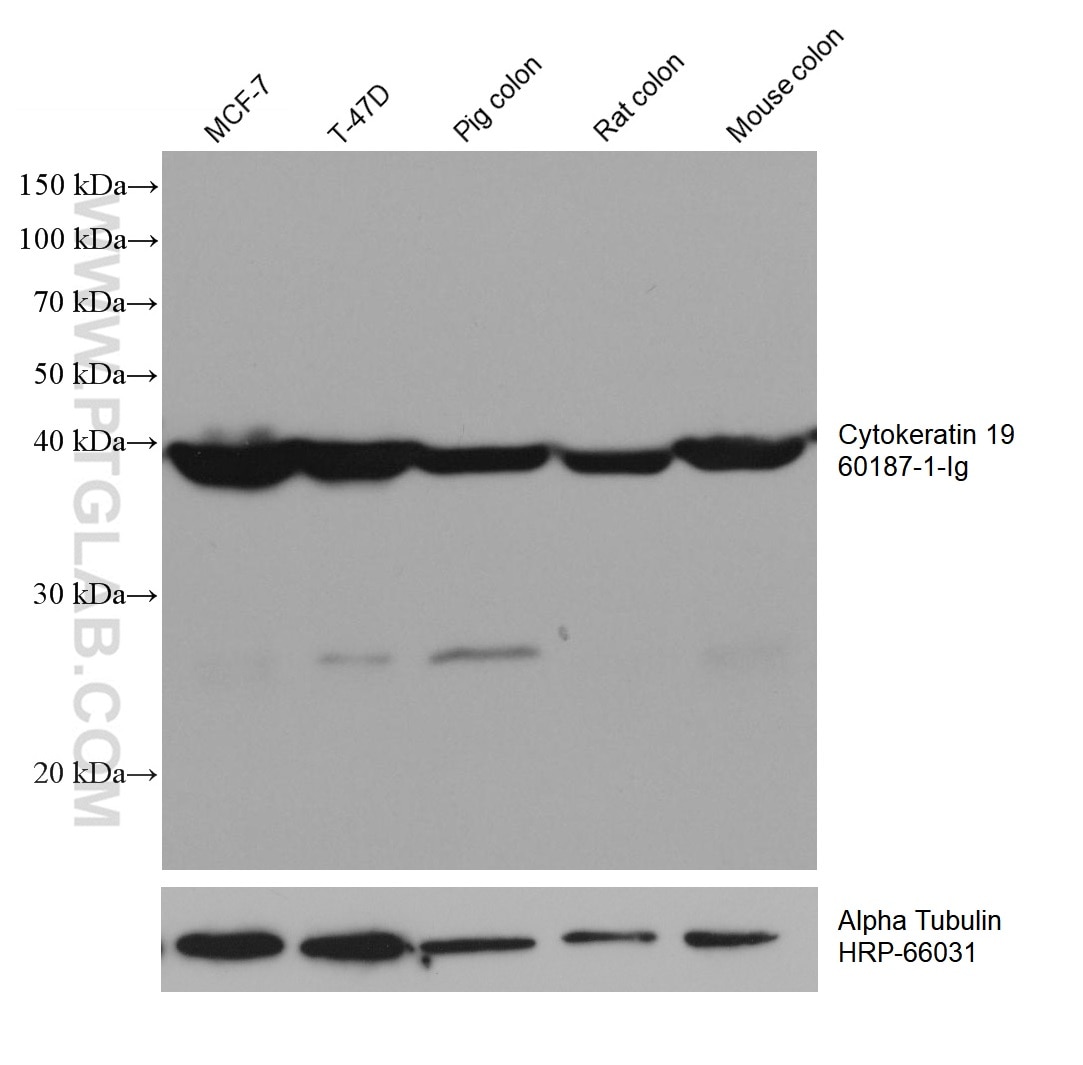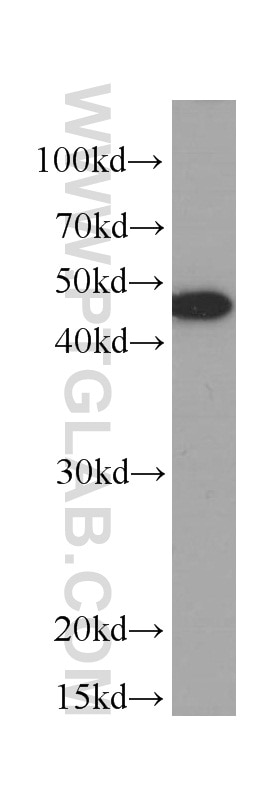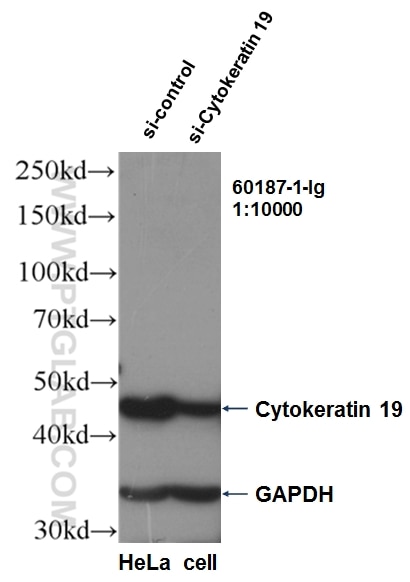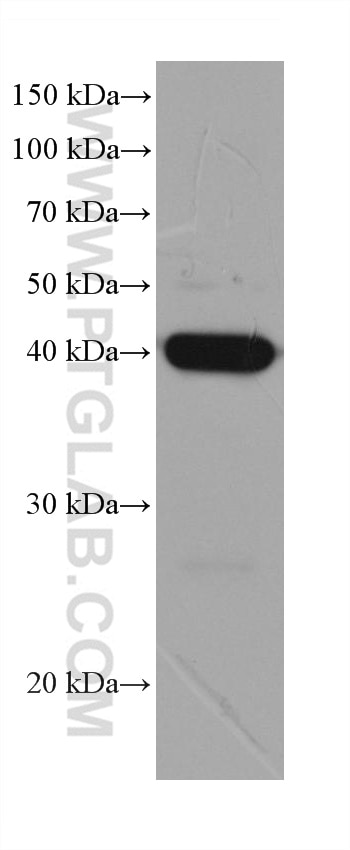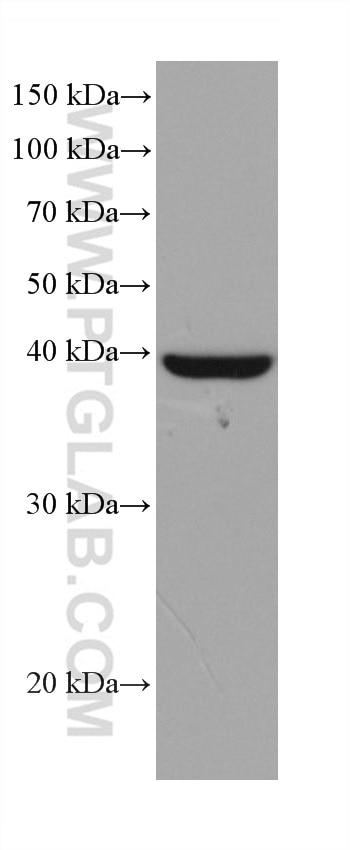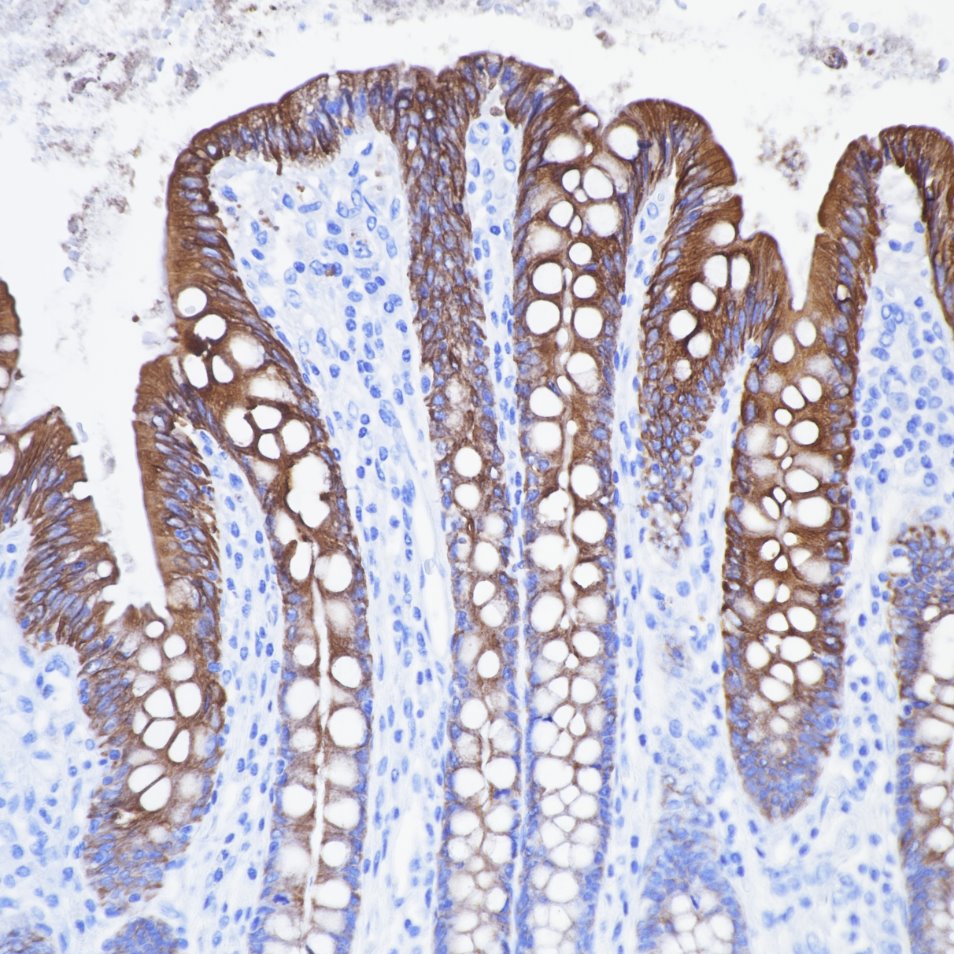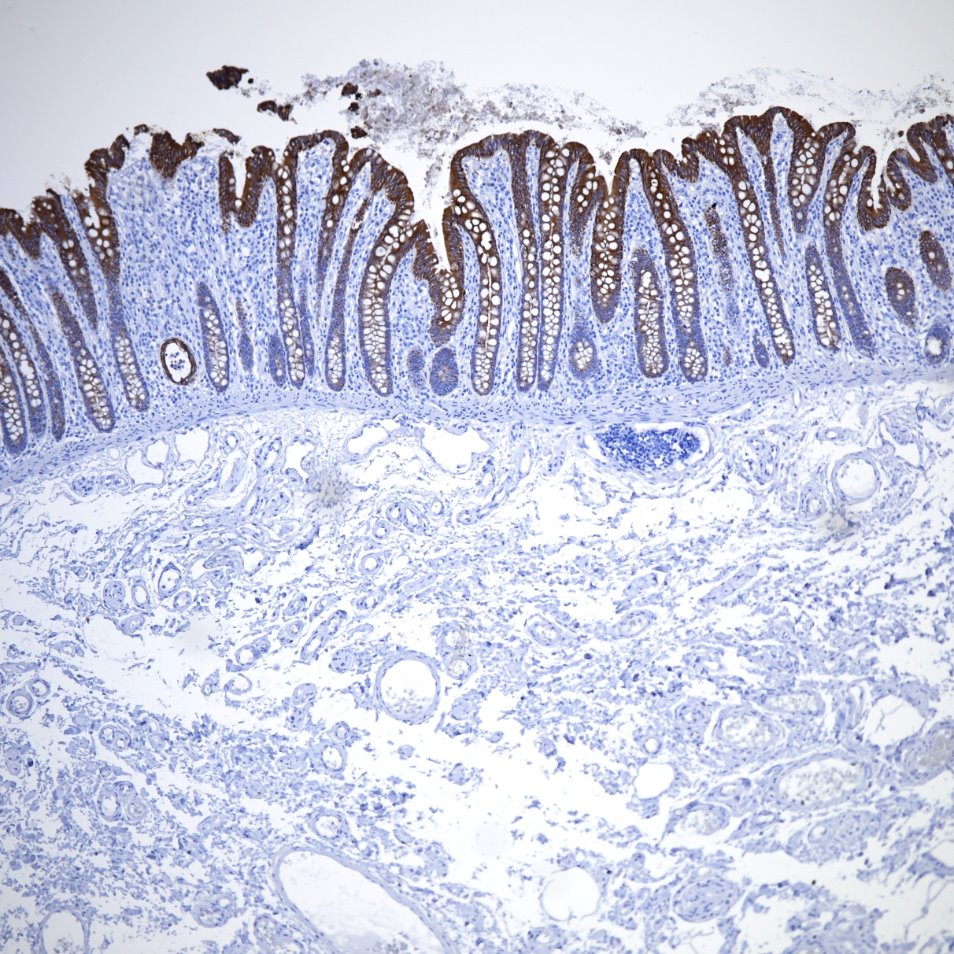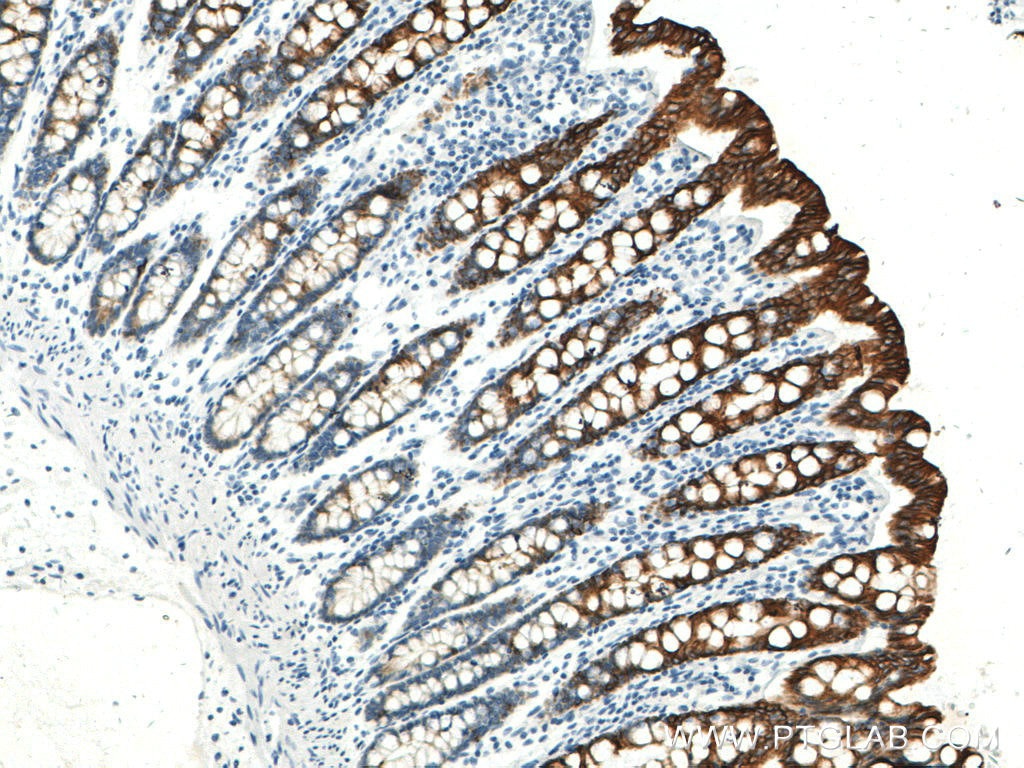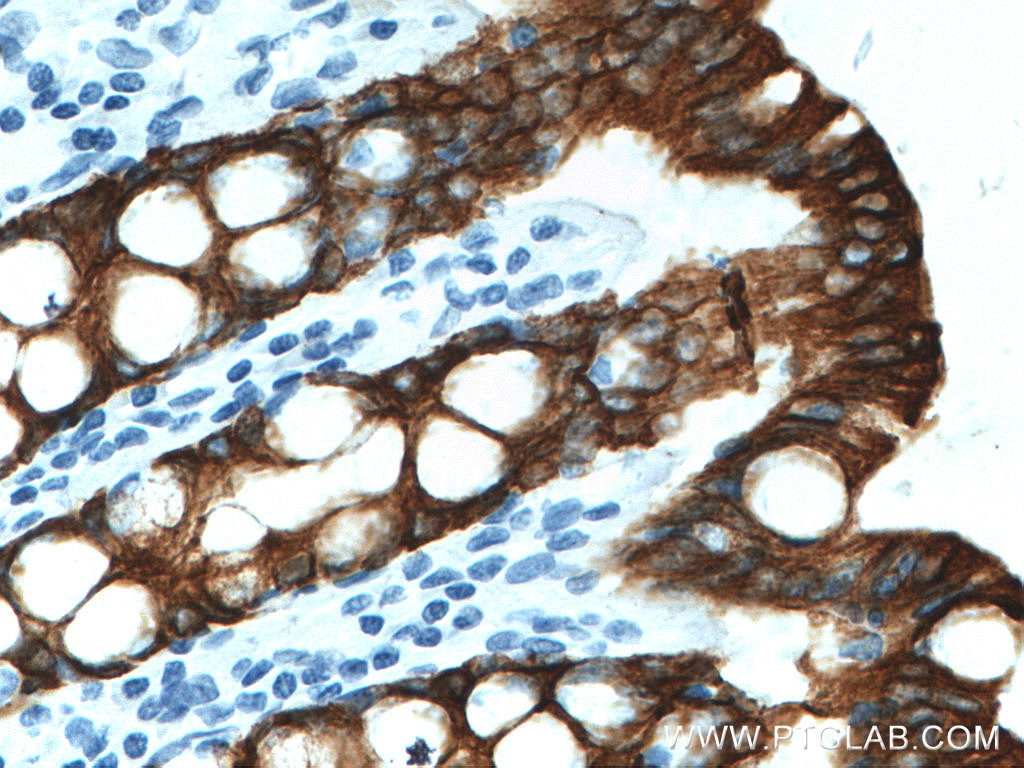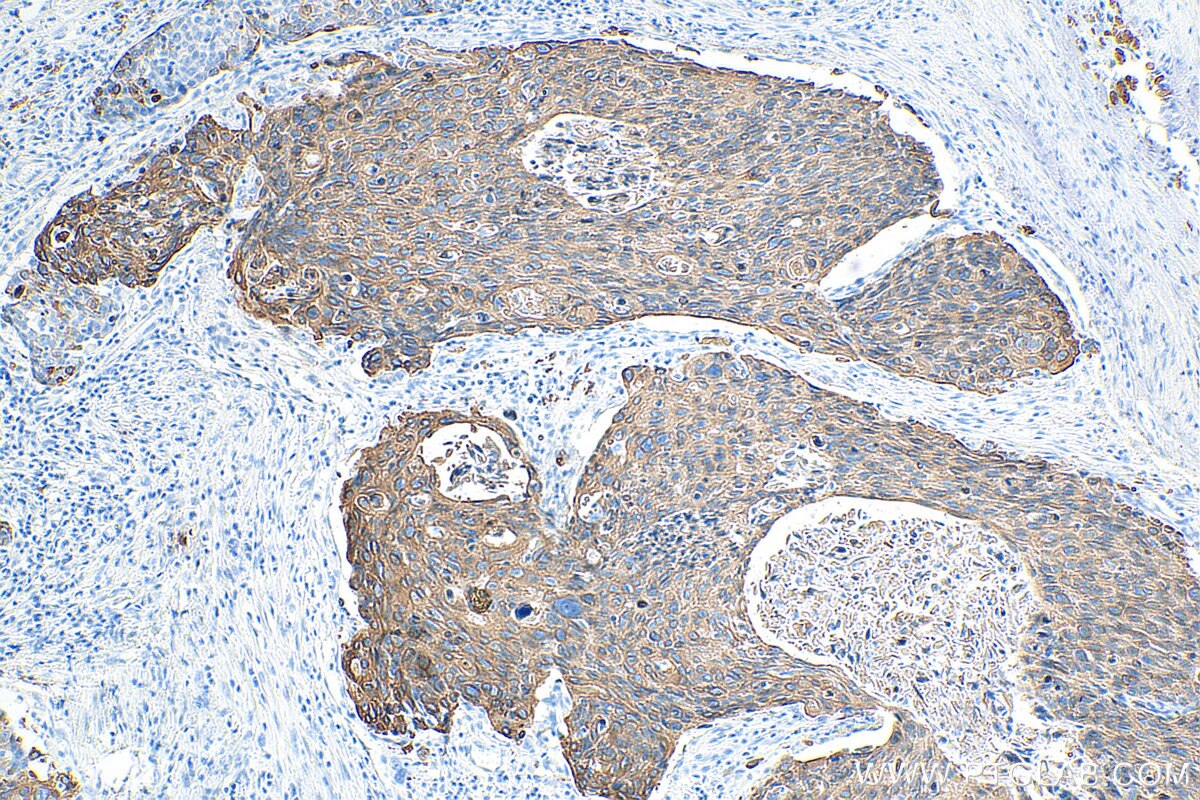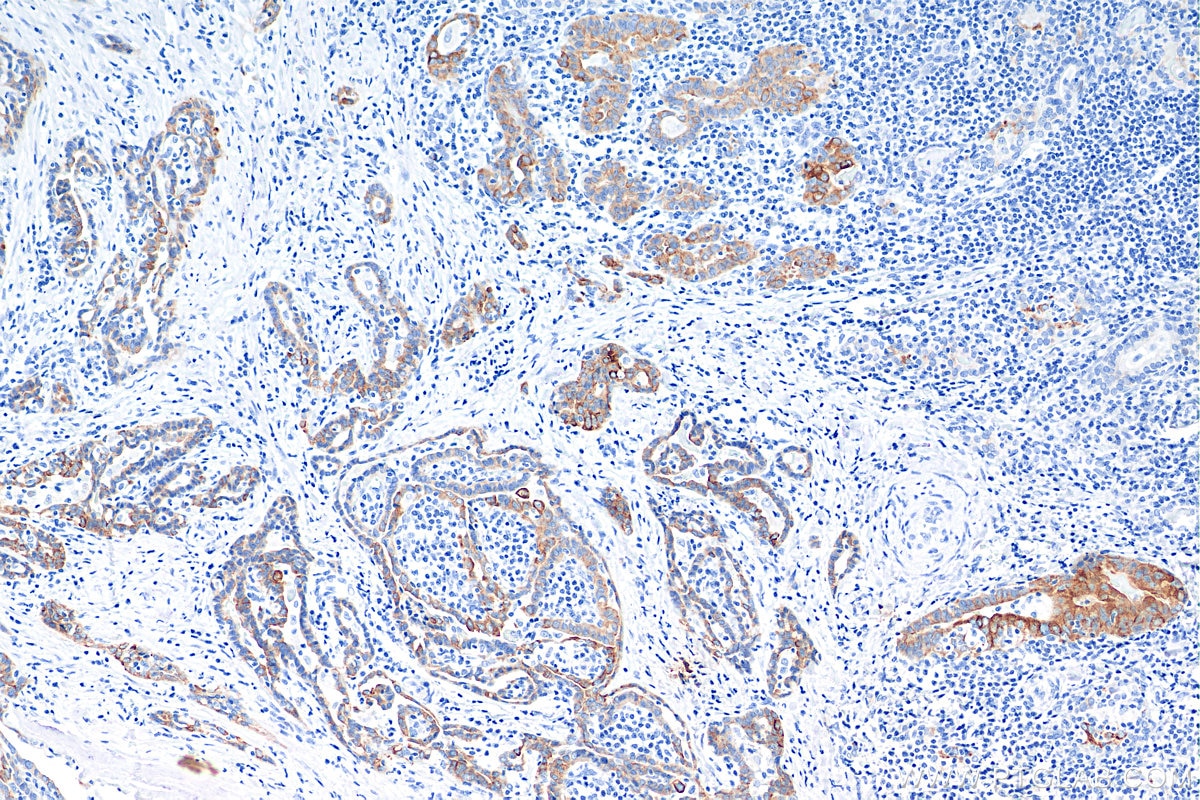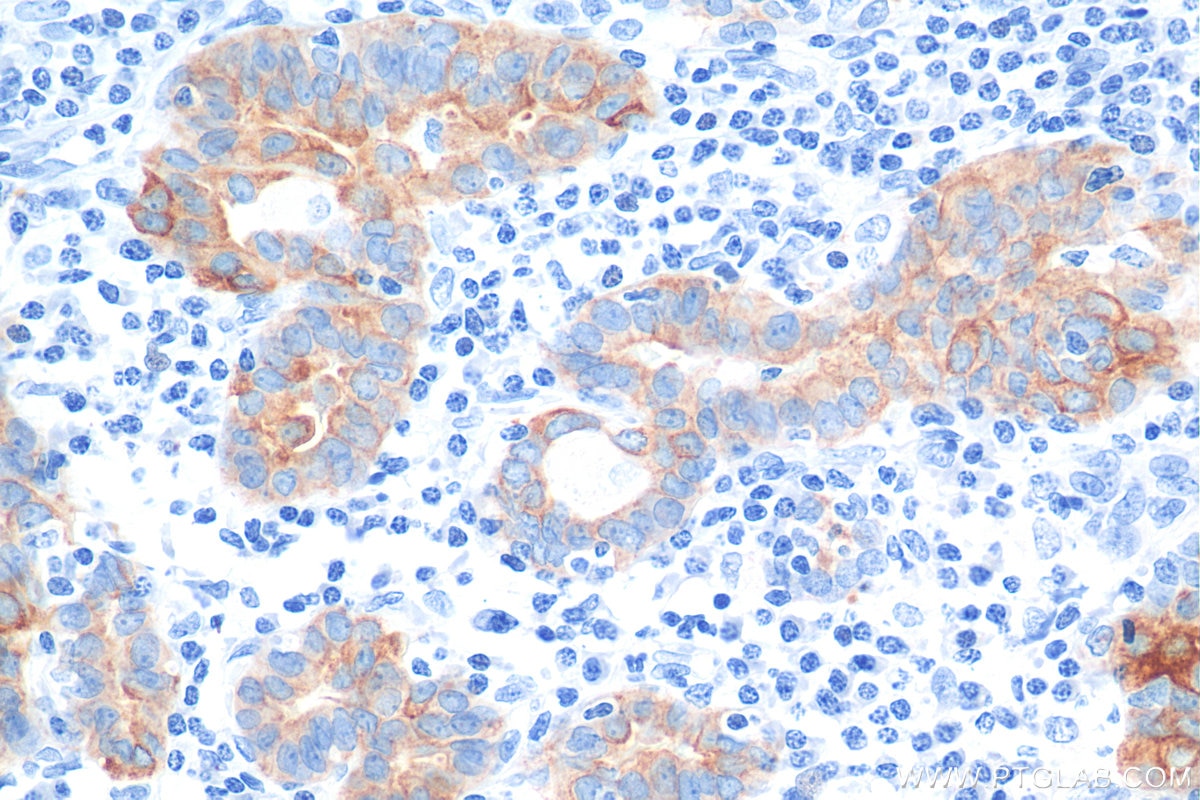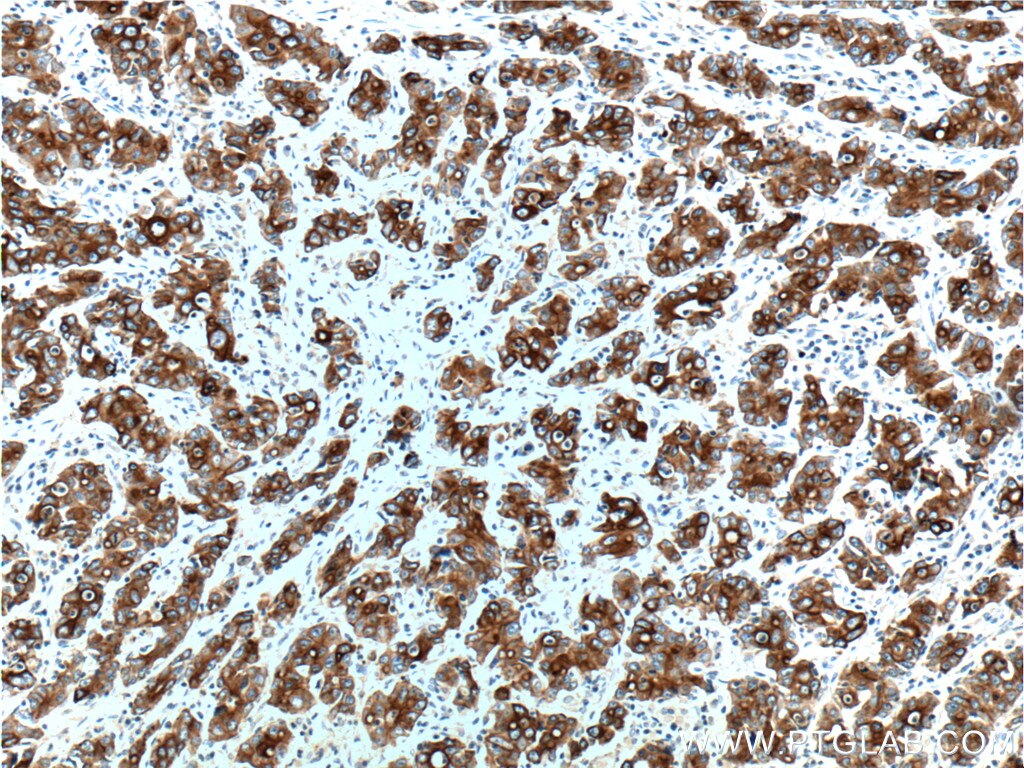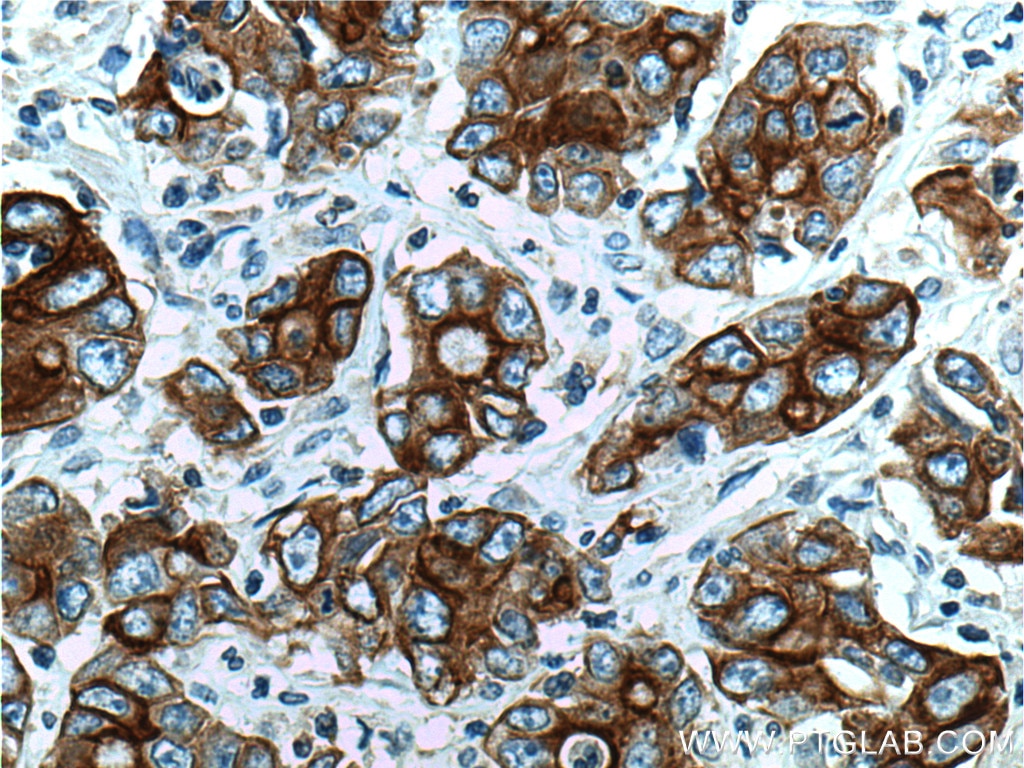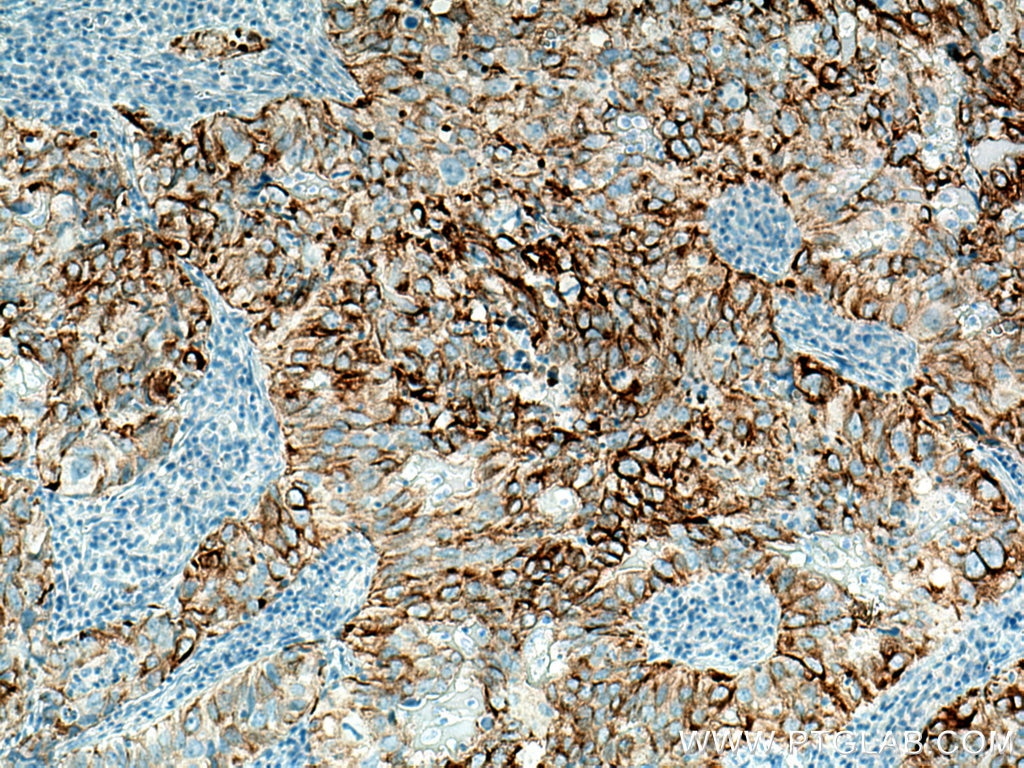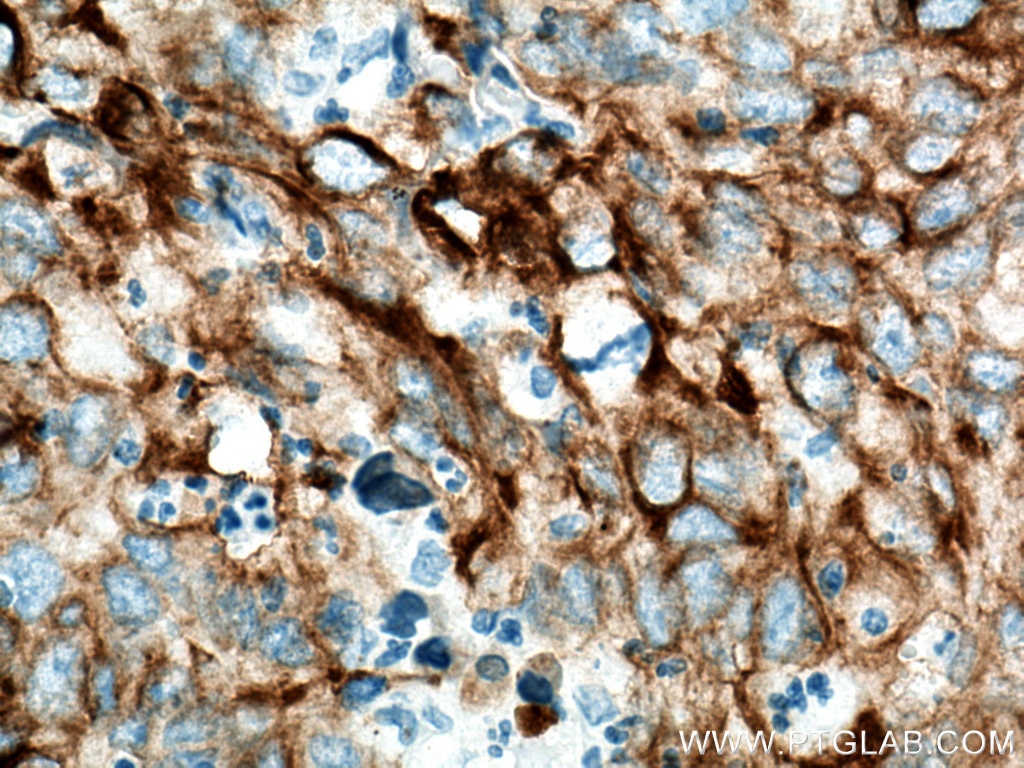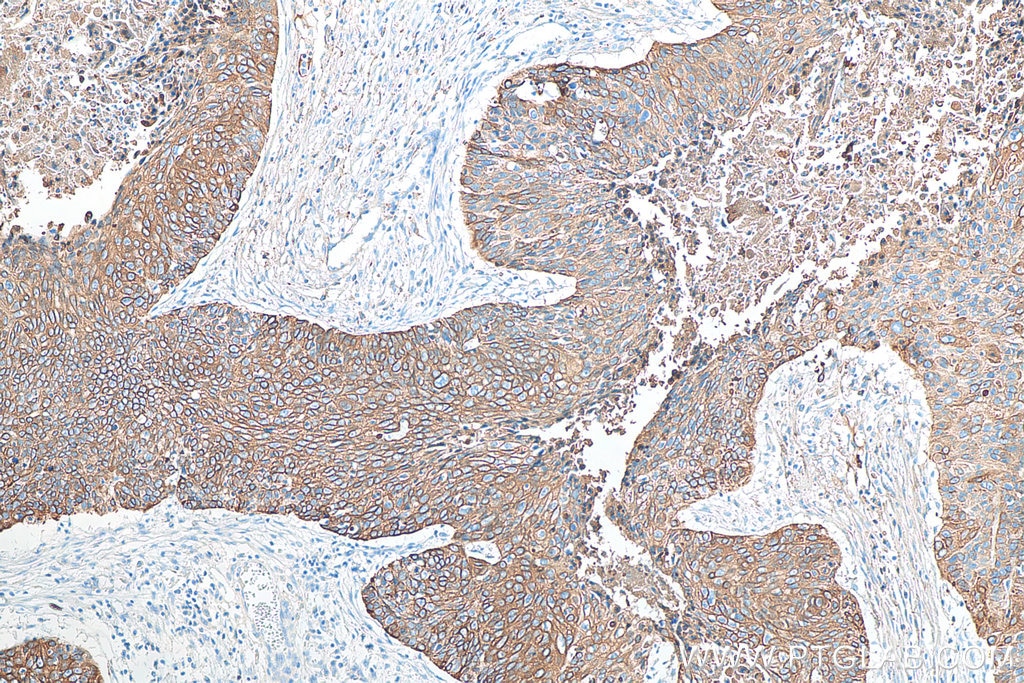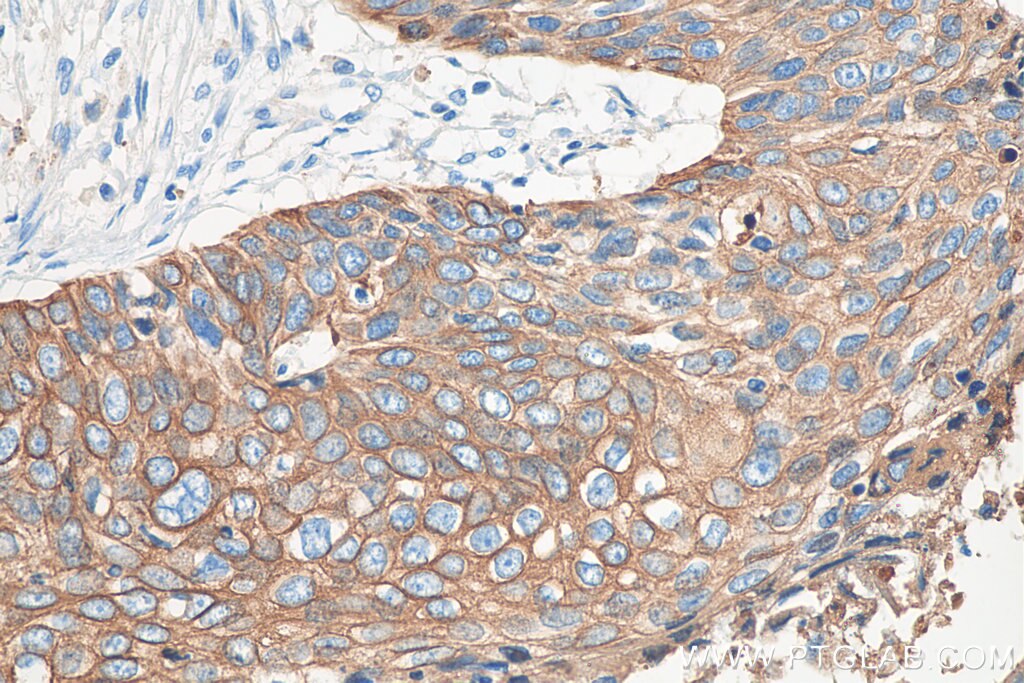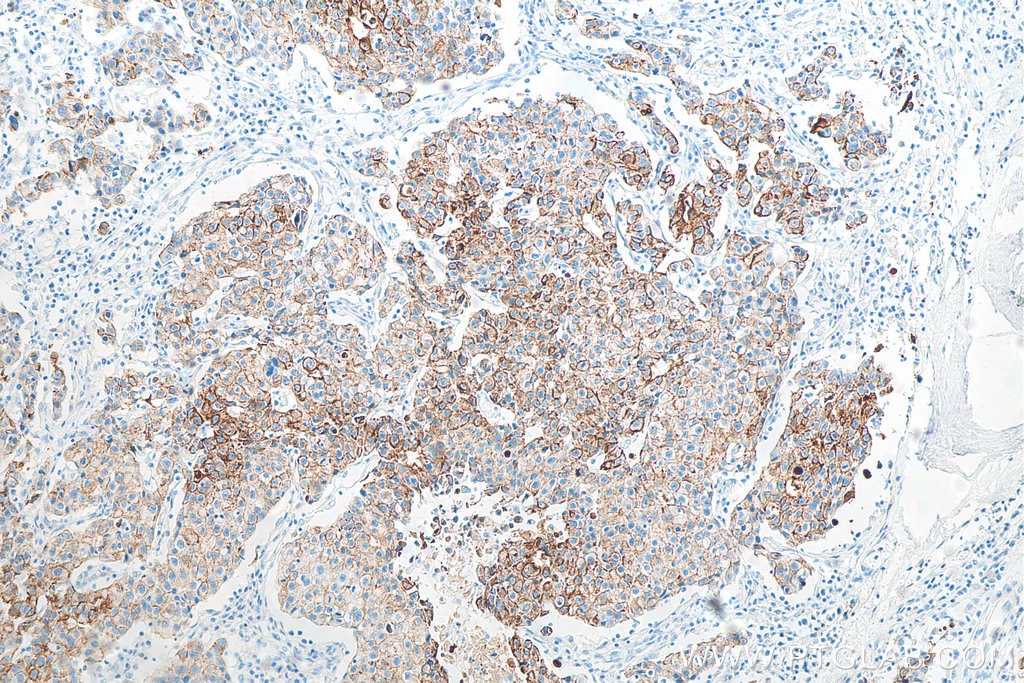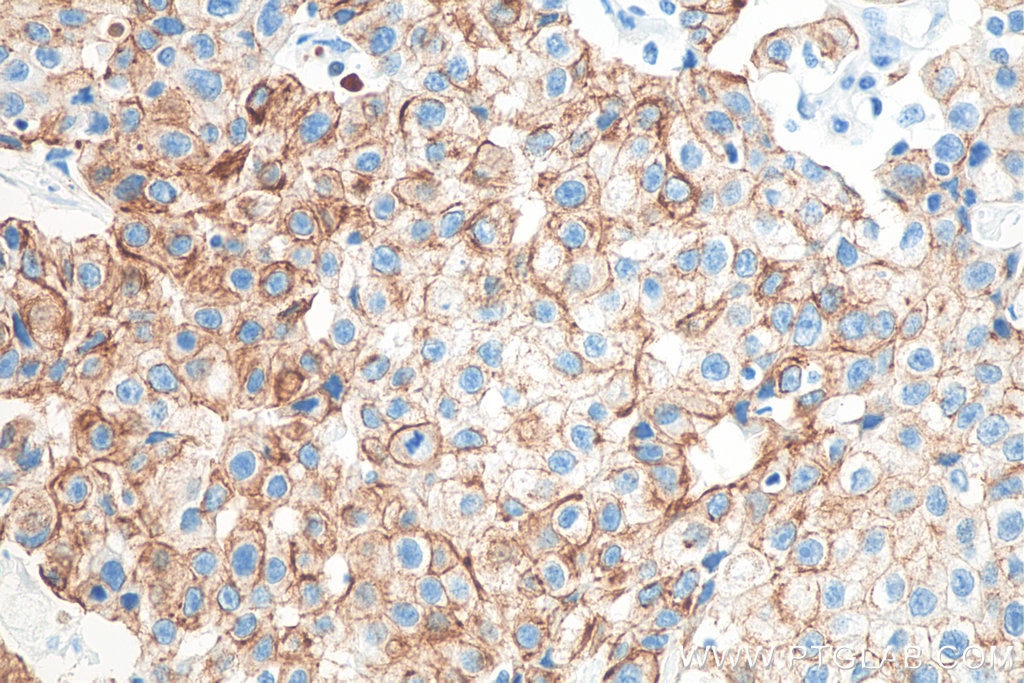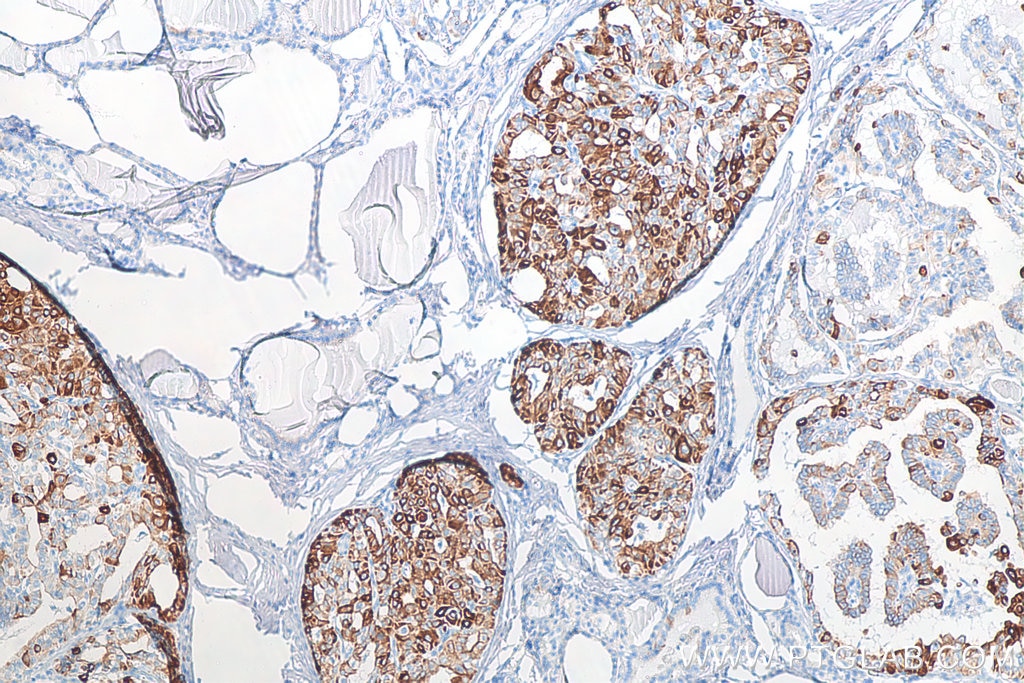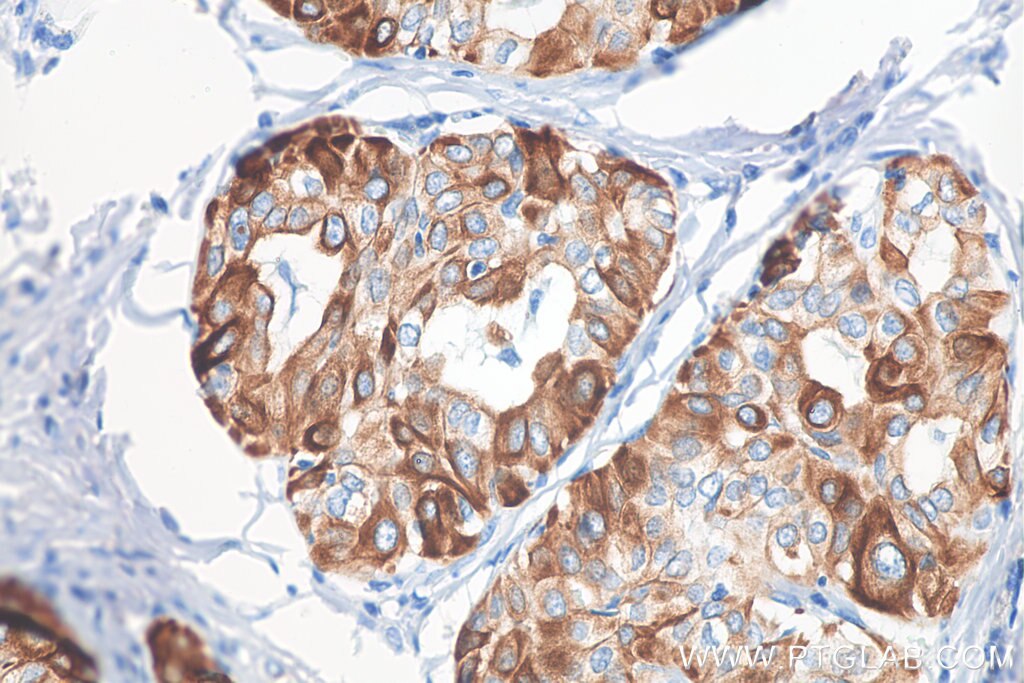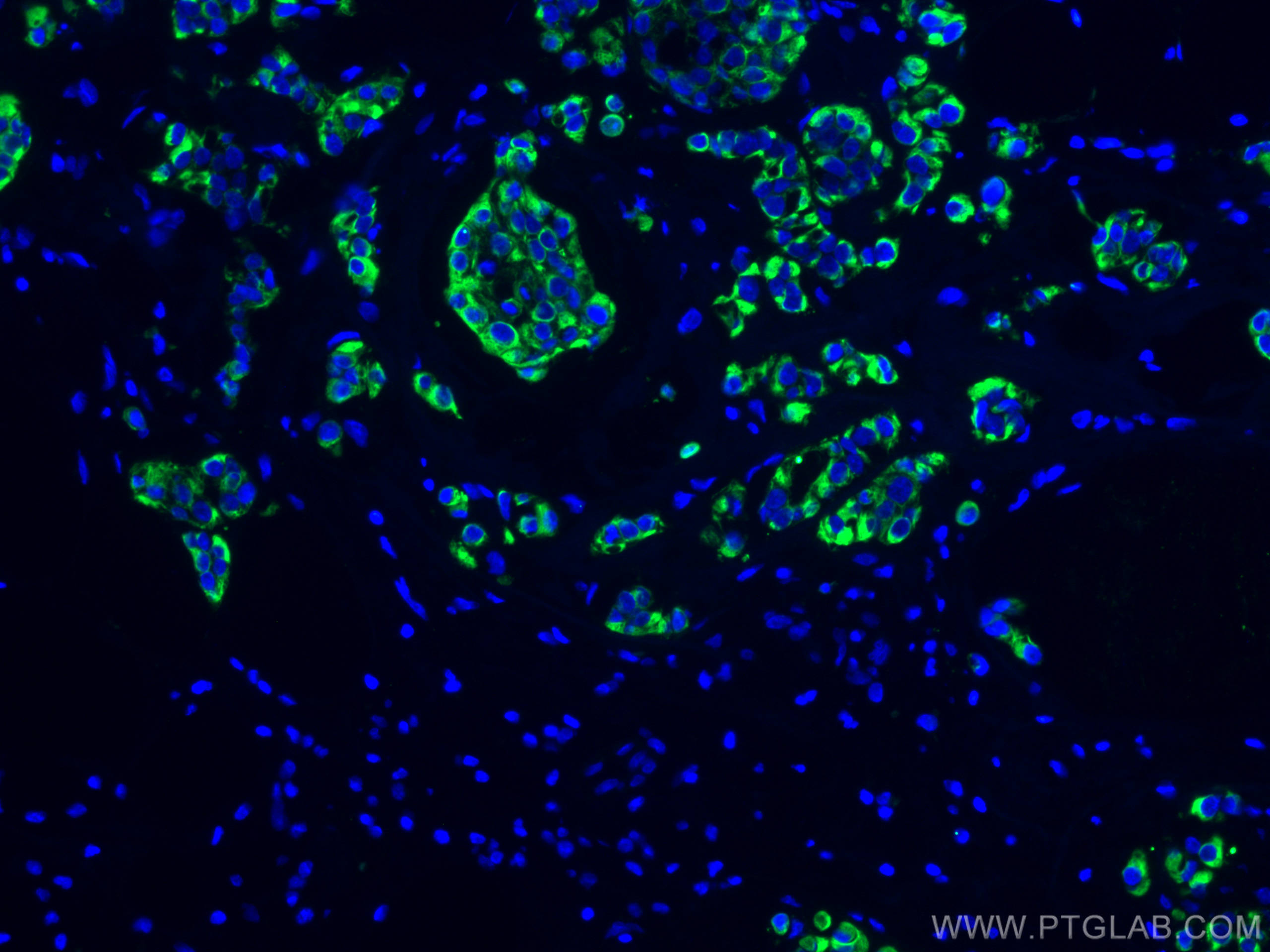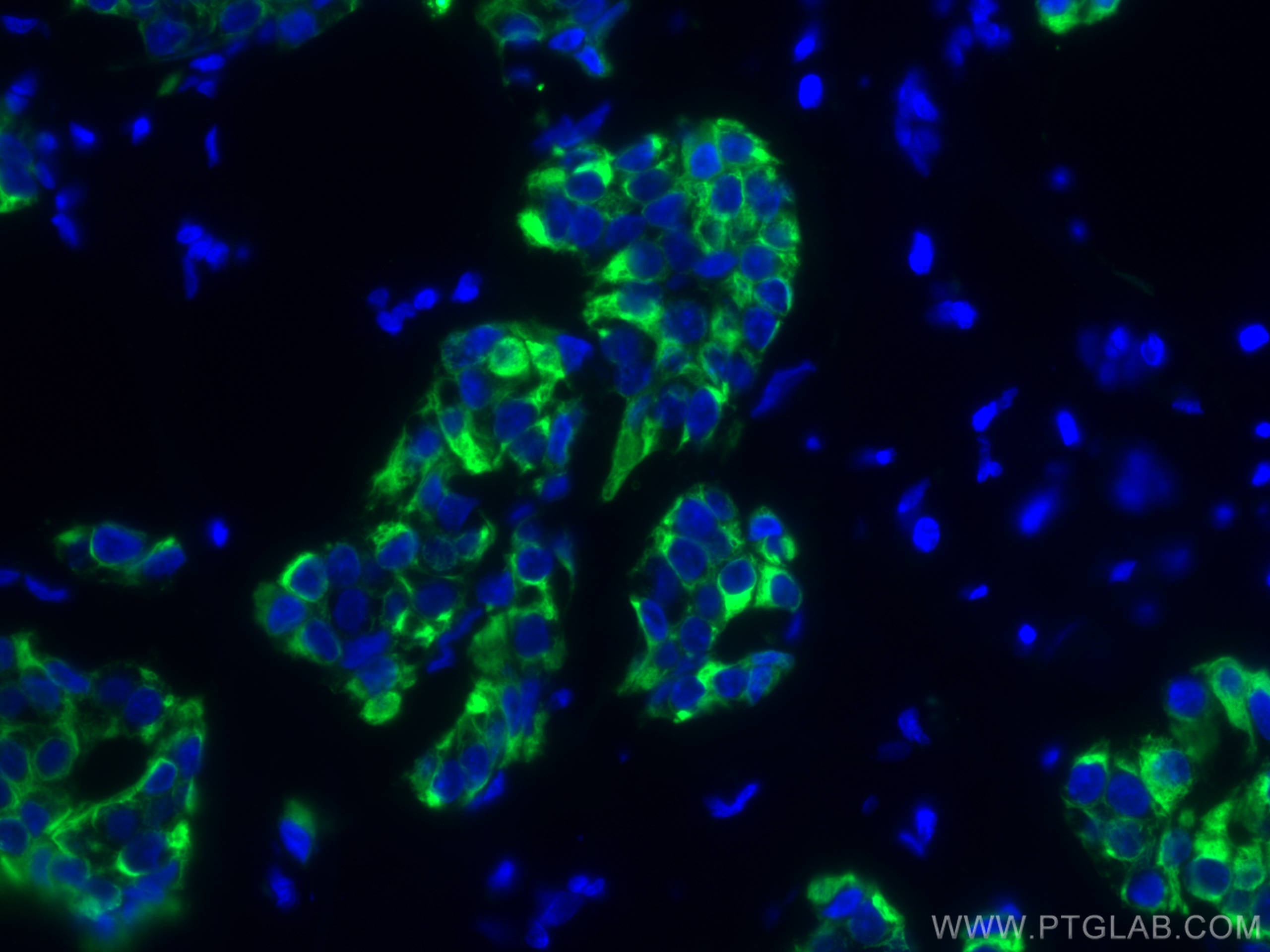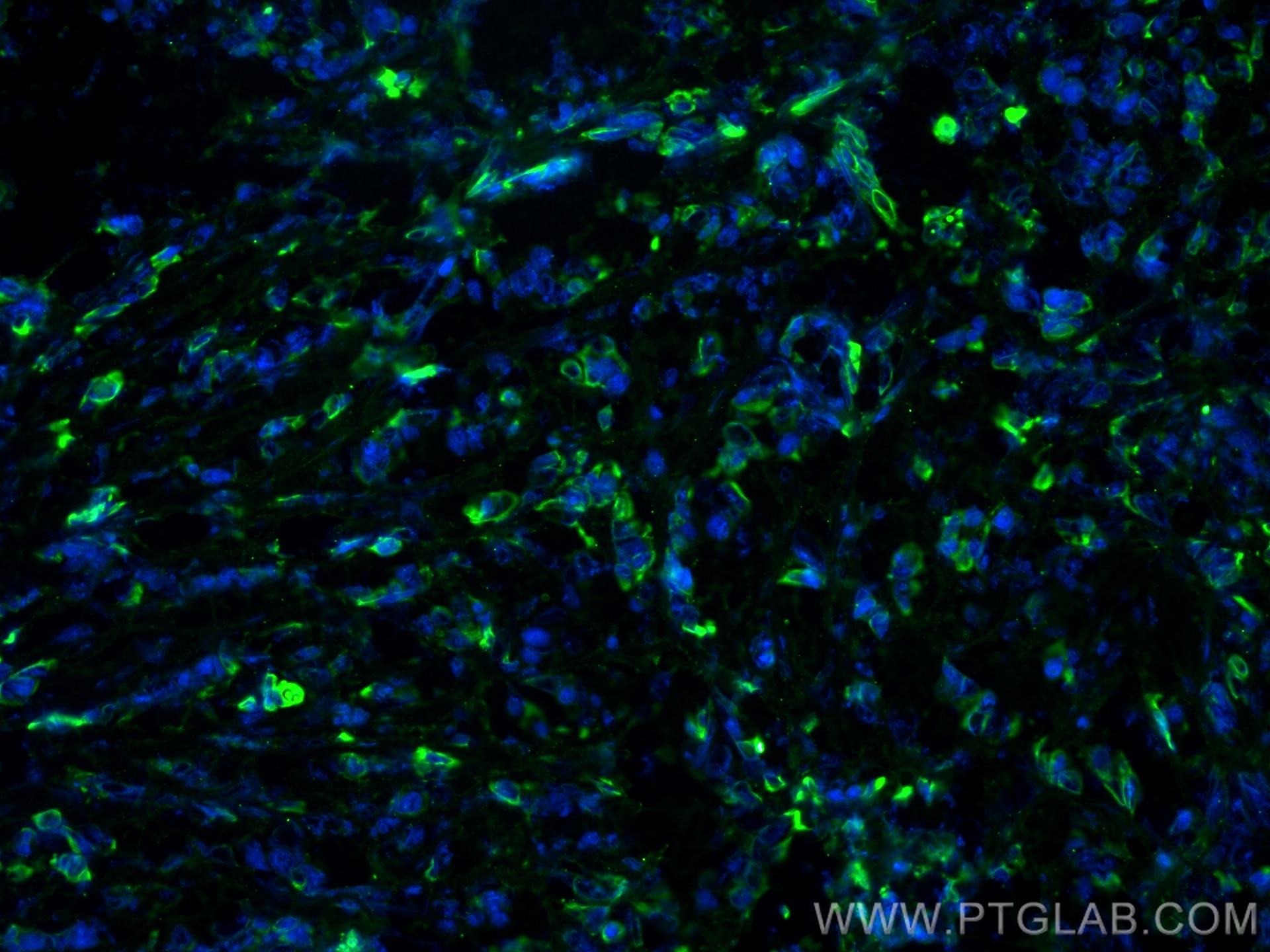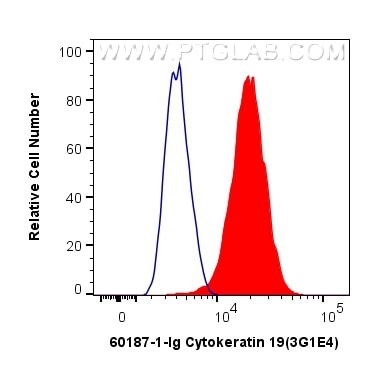Validation Data Gallery
Tested Applications
| Positive WB detected in | MCF-7 cells, HaCaT cells, PC-3 cells, HeLa cells, T-47D cells, pig colon tissue, rat colon tissue, mouse colon tissue |
| Positive IHC-Autostainer detected in | human colon tissue |
| Positive IHC detected in | human colon tissue, human stomach cancer tissue, human lung cancer tissue, human thyroid cancer tissue, human breast cancer tissue, human oesophagus cancer tissue Note: suggested antigen retrieval with TE buffer pH 9.0; (*) Alternatively, antigen retrieval may be performed with citrate buffer pH 6.0 |
| Positive IF-P detected in | human breast cancer tissue |
| Positive IF-Fro detected in | mouse breast cancer |
| Positive FC (Intra) detected in | HeLa cells |
Recommended dilution
| Application | Dilution |
|---|---|
| Western Blot (WB) | WB : 1:20000-1:100000 |
| Immunohistochemistry (IHC)-AUTOSTAINER | IHC-AUTOSTAINER : 1:12500-1:50000 |
| Immunohistochemistry (IHC) | IHC : 1:1000-1:51200 |
| Immunofluorescence (IF)-P | IF-P : 1:200-1:800 |
| Immunofluorescence (IF)-FRO | IF-FRO : 1:200-1:800 |
| Flow Cytometry (FC) (INTRA) | FC (INTRA) : 0.40 ug per 10^6 cells in a 100 µl suspension |
| It is recommended that this reagent should be titrated in each testing system to obtain optimal results. | |
| Sample-dependent, Check data in validation data gallery. | |
Published Applications
| WB | See 3 publications below |
| IHC | See 3 publications below |
| IF | See 10 publications below |
Product Information
60187-1-Ig targets Cytokeratin 19 in WB, IHC, IHC-Autostainer, IF-P, IF-Fro, FC (Intra), ELISA applications and shows reactivity with human, mouse, rat, pig samples.
| Tested Reactivity | human, mouse, rat, pig |
| Cited Reactivity | human, mouse |
| Host / Isotype | Mouse / IgG2b |
| Class | Monoclonal |
| Type | Antibody |
| Immunogen |
CatNo: Ag7407 Product name: Recombinant human KRT19 protein Source: e coli.-derived, PET28a Tag: 6*His Domain: 1-400 aa of BC002539 Sequence: MTSYSYRQSSATSSFGGLGGGSVRFGPGVAFRAPSIHGGSGGRGVSVSSARFVSSSSSGGYGGGYGGVLTASDGLLAGNEKLTMQNLNDRLASYLDKVRALEAANGELEVKIRDWYQKQGPGPSRDYSHYYTTIQDLRDKILGATIENSRIVLQIDNARLAADDFRTKFETEQALRMSVEADINGLRRVLDELTLARTDLEMQIEGLKEELAYLKKNHEEEISTLRGQVGGQVSVEVDSAPGTDLAKILSDMRSQYEVMAEQNRKDAEAWFTSRTEELNREVAGHTEQLQMSRSEVTDLRRTLQGLEIELQSQLSMKAALEDTLAETEARFGAQLAHIQALISGIEAQLGDVRADSERQNQEYQRLMDIKSRLEQEIATYRSLLEGQEDHYNNLSASKVL 相同性解析による交差性が予測される生物種 |
| Full Name | keratin 19 |
| Calculated molecular weight | 44 kDa |
| Observed molecular weight | 48 kDa |
| GenBank accession number | BC002539 |
| Gene Symbol | Cytokeratin 19 |
| Gene ID (NCBI) | 3880 |
| RRID | AB_10859834 |
| Conjugate | Unconjugated |
| Form | |
| Form | Liquid |
| Purification Method | Protein A purification |
| UNIPROT ID | P08727 |
| Storage Buffer | PBS with 0.02% sodium azide and 50% glycerol{{ptg:BufferTemp}}7.3 |
| Storage Conditions | Store at -20°C. Stable for one year after shipment. Aliquoting is unnecessary for -20oC storage. |
Background Information
Cytokeratin 19 (CK19 or KRT19) is a type I (acidic) cytokeratin. It is an intermediate filament protein providing structural rigidity and multipurpose scaffolds in epithelial cells. CK19 is often overexpressed in various cancers (e.g., hepatocellular carcinoma [HCC], pancreatic adenocarcinoma, lung cancer) and serves as a biomarker for hepatic progenitor cells (HPCs) associated with poor prognosis in HCC patients . Additionally, CK19 expression is common in pancreatic and gastrointestinal adenocarcinomasand has been studied as a potential diagnostic and prognostic marker for pancreatic neuroendocrine tumors (PNETs), where positive CK19 expression correlates with poor prognosis. Serum CK19 fragments (e.g., CYFRA 21-1, CK19-2G2) have been investigated as tumor markers for lung and breast cancer, with preoperative levels associated with metastasis and survival.
Protocols
| Product Specific Protocols | |
|---|---|
| FC protocol for Cytokeratin 19 antibody 60187-1-Ig | Download protocol |
| IF protocol for Cytokeratin 19 antibody 60187-1-Ig | Download protocol |
| IHC protocol for Cytokeratin 19 antibody 60187-1-Ig | Download protocol |
| WB protocol for Cytokeratin 19 antibody 60187-1-Ig | Download protocol |
| Standard Protocols | |
|---|---|
| Click here to view our Standard Protocols |
Publications
| Species | Application | Title |
|---|---|---|
Nat Commun Interventional hydrogel microsphere vaccine as an immune amplifier for activated antitumour immunity after ablation therapy | ||
Stem Cells Annexin A3 as a Potential Target for Immunotherapy of Liver Cancer Stem-Like Cells. | ||
Stem Cell Res Ther DPSCs regulate epithelial-T cell interactions in oral submucous fibrosis | ||
Breast Cancer Res Single-cell RNA reveals a tumorigenic microenvironment in the interface zone of human breast tumors | ||
Commun Biol Chemerin attenuates acute kidney injury by inhibiting ferroptosis via the AMPK/NRF2/SLC7A11 axis | ||
Biomed Pharmacother Serotonin-RhoA/ROCK axis promotes acinar-to-ductal metaplasia in caerulein-induced chronic pancreatitis. |

